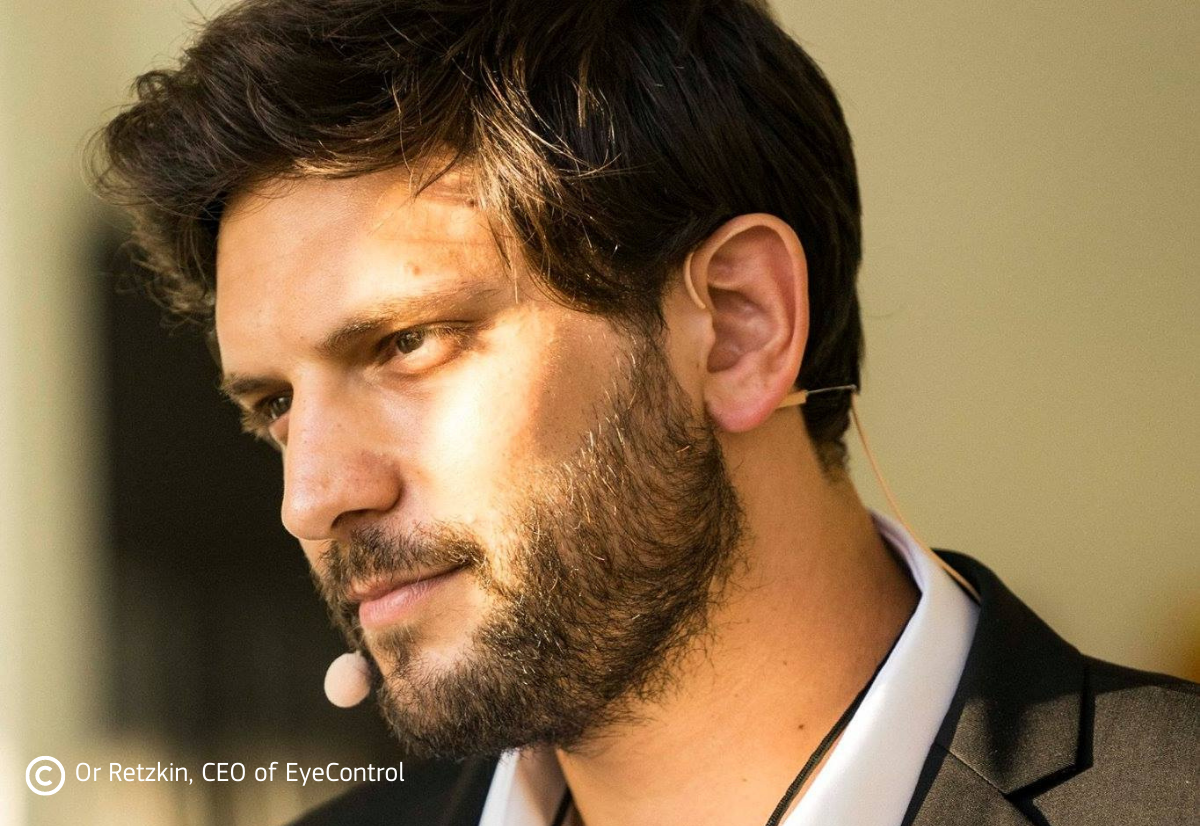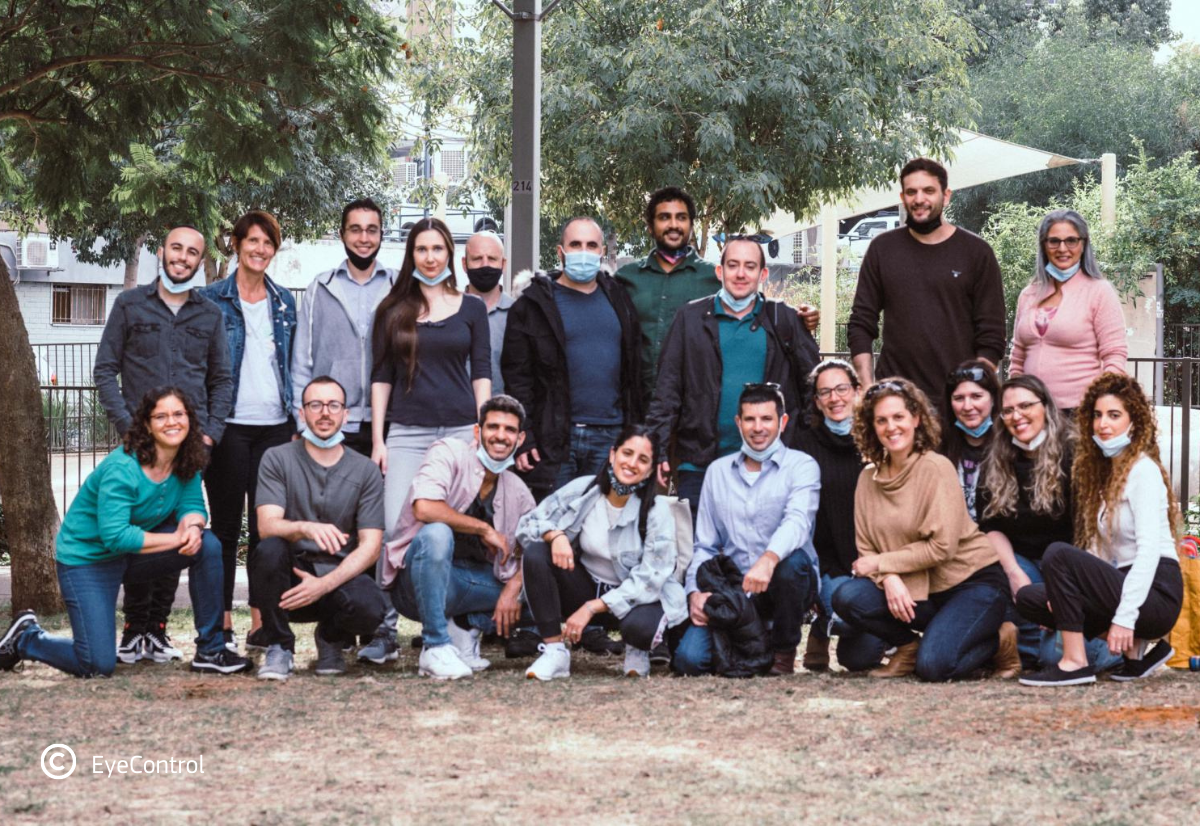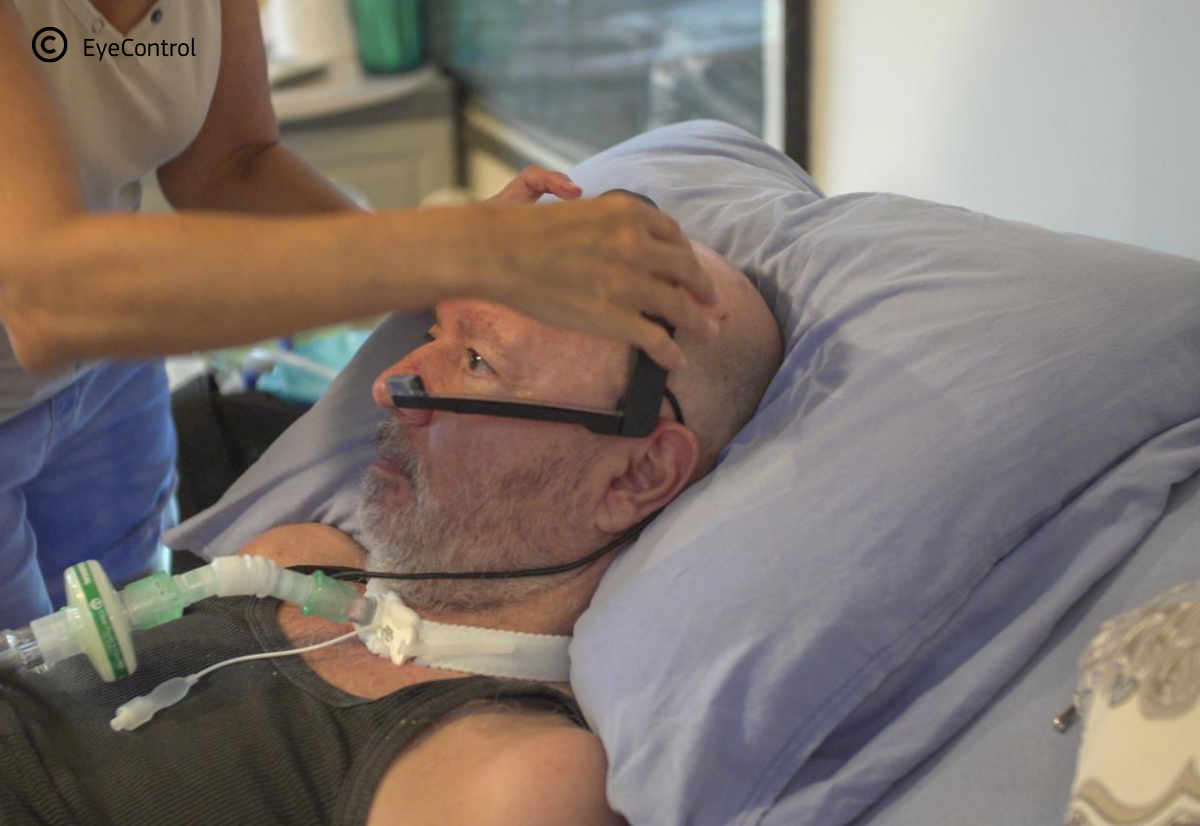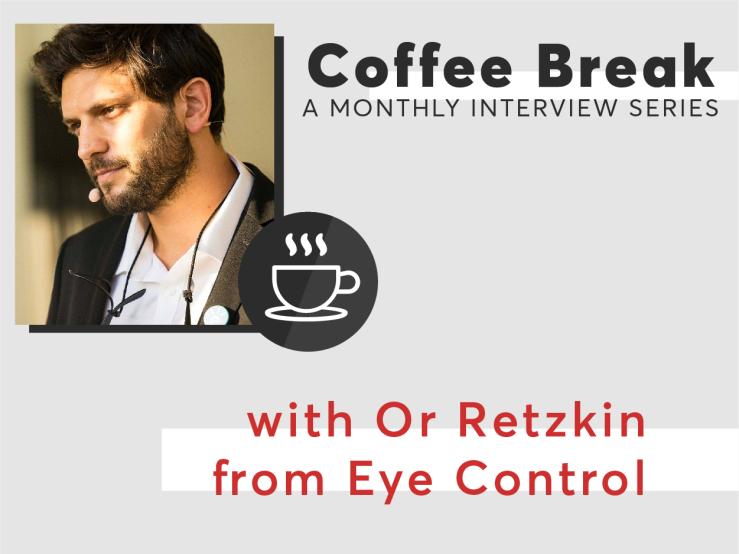Every month, during a Coffee Break, we dive into the stories of EIC innovators and get a glimpse of the persons behind the startups. Today's episode coincides with the World Day of Health, and we couldn't leave this date unnoticed. The theme for this year's celebration is "Building a fairer, healthier world". With this motto in mind, we get together with Or Retzkin, CEO of EyeControl. The startup, based in Israel, developed an innovative communication solution that bridges information barriers, facilitating better care and decision-making in healthcare environments, thereby eliminating important health inequities. Discover the story behind this innovation in the EIC Coffee Break of the Month.
Worldwide, more than 1.2M Locked-in individuals are affected by amyotrophic lateral sclerosis (ALS), stroke, and traumatic brain injury. Additionally, more than 11.7 million patients are admitted to EU and US ICUs annually: approximately 40% requiring mechanical ventilation. Locked-in Syndrome is a neurological disorder characterized by paralysis of all voluntary muscles in the body, except those controlling eye movement. A Locked-in individual is cognitively sound, but unable to move or speak, thereby rendering communication impossible. A similar situation occurs among patients in ICUs and rehabilitation centres; mechanical ventilation prohibits verbal communication and the eyes become an essential means of expression. A patient’s ability to communicate results in more accurate medical care, decreased stress, and better patient outcomes.
The EyeControl is a game-changer for ventilated and Locked-in patients; it is the first wearable, screenless, communication device. AI-powered eye-tracking technology, enables communication between patients, medical staff and family, using eye movements, without calibration or computer screen dependency.
Tell us how the idea of your innovation started. Was it something that was bouncing in the back of your head for a long time?
Our innovation started as a simple brainstorming among friends. EyeControl’s co-founders all have personal connections to locked-in individuals. 14 years ago, my grandmother died from ALS, and I started volunteering at Israel’s ALS non-profit, where I met Shay Rishoni (Z”L), the organization’s CEO, who was an ALS patient himself. One day, I went with a group of friends to Shay's house; he told us that he would like to develop a device that would enable patients like him to communicate 24/7 without computer dependency. Shay shared that communication was essential for him, and we discussed the possibility of creating a wearable solution. The idea started as a volunteer initiative during my time with the non-profit; we had no intention of starting a company, which is why I think our evolution was so beautiful. Unfortunately, we already knew that Shay didn’t have long to live; so, as a co-founder of the company, we allocated shares to the non-profit on his behalf. The company is now focusing more on healthcare facility patients, and less on those with ALS; but, regardless, the NGO will hopefully benefit from our profits and reinforce their ALS research and support of this community.
How did your family react to your switch and investment in this startup?
My grandmother had ALS, and we witnessed first-hand her struggles to communicate as a result of the disease. My family has always been very supportive and engaged, both in my work with the non-profit and in our initiation of this startup; it is very special to them.

Can you tell us about a challenging moment you had at your company and how you pushed through?
We experience challenges every day; I think every company needs to overcome challenges. In our case, we are very connected with the patients and their families; unfortunately, because ALS is a fatal disease, we encounter very sad losses, including that of our co-founder, Shay Rishoni (Z”L). At the beginning of our journey, we also had difficulties transitioning from non-profit roots to a commercial enterprise. Fundraising was complicated, but with time and persistence, we managed to achieve what we wanted.
One of these achievements happened in April 2020. EyeControl was the winner of the ePitching session with procurers on COVID-19. Do you still remember your first pitch?
Yes, indeed! It would be interesting to see my first pitch at this stage. We’ve undergone a lot of changes, especially this past year; but I think our messaging remains the same. We are motivated, we know what we are doing and why we are doing it, and this is something we demonstrate from the first encounter.
When I first pitched to our angel investors, I noticed that they were not focused on our technology, which was surprising. I always assumed they wanted to understand our solution and experience a pitch and product demonstration targeting the innovation aspect. I realised that they were most interested in our team, and today I fully understand this inclination. Technology evolves, but the company’s leadership is the future our start-up is built upon.

What advice can you give to people who are currently playing with the idea of starting a company and becoming potential entrepreneurs?
Starting a company involves a lot of failure before success; failure is okay, as long as it paves the way to success and results in the eventual big wins. I've never met a relaxed company founder; they always have multiple concerns on their minds. I think people need to understand that starting a company, especially a startup, involves creating something from scratch and bringing it to the next level. The owners and CEOs need to set their expectations before entering in this run. They also need to be ready to work hard because this is one of the requirements for success. The most important aspect is to enjoy the journey and grow with it.
Who has shaped where you are?
An important group of people has shaped where I am right now, including Itai Kornberg, our CTO; also, the company’s chairman of the board of directors, and our investors always give me important advice and feedback that I heed as I move forward. I consult each one for different things, and their experiences bring me a lot of value. Working in a start-up enhances the significance of these exchanges; we don't always need to reinvent the wheel, we can in part rely on other people's experiences to grow.

What book inspired you the most?
I love reading; one of my favourite books is "Tuesdays with Morrie," and we keep copies around the office, although it is not business related. It is the story of a professor with ALS, who is visited weekly by his former student. They converse regularly about what life has to offer and how to really value the time we have. I always recommend this book to our team for inspiration.
If you could talk business over lunch with a large corporate CEO or global leader, which one would you choose and why?
I try to learn from every interaction that I have, no matter a person’s title or status; however, if choosing among CEOs, Elon Musk would be my top pick. He has travelled a great innovative path, and I'm sure it would be very interesting to speak with him.

DISCLAIMER: This information is provided in the interest of knowledge sharing and should not be interpreted as the official view of the European Commission, or any other organisation.

